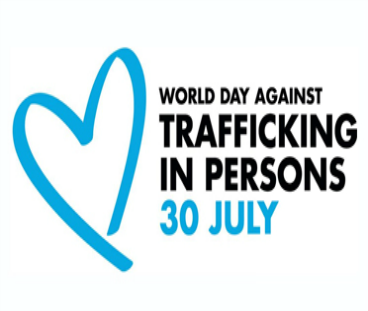Mr. Speaker, today I am introducing the Trafficking Victims Protection Reauthorization Act of 2003, which is intended to improve the United States’ efforts in combating the scourge of human trafficking. I am very pleased to have Congressmen Lantos, Ranking Member of the International Relations Committee, Congressman Pitts and Congresswoman Slaughter, join me as original cosponsors.
According to a recently released U.S. Government estimate, 800,000 to 900,000 women, children and men fall victim to international trafficking each year and end up prisoners of slavery-like practices in the commercial sex industry, domestic servitude, sweatshops, and agricultural farms, among other destinations.
In October 2000, we adopted the Trafficking Victims Protection Act (TVPA), P.L. 106-386. As a result of that law, the U.S. Government allocated $68.2 million last year to combat trafficking in human beings. In the past two years, federal prosecutors initiated prosecutions of 79 traffickers–three times as many as in the two previous years. Nearly 400 survivors of trafficking in the United States have received assistance, facilitated by the Department of Health and Human Services, to begin recovering from their trauma and to rebuild their shattered lives. Thanks to the efforts of the State Department, USAID, and the spotlight put on the issue through the annual Trafficking in Persons Report, governments worldwide have also begun taking significant actions against human trafficking.
Despite these substantive inroads, people continue to be bought and sold in modern day slavery. Victims continue to face obstacles in the process of securing needed assistance. We are not yet addressing trafficking in persons as an organized crime activity. We have not yet aggressively targeted sex tourism as a factor contributing to the demand for trafficked persons in prostitution, and more specialized research is needed.
The Trafficking Victims Protection Reauthorization Act (TVPRA) would address these and other areas of concern, would authorize funding to continue our government’s efforts against trafficking, and would build upon the experience of implementing the TVPA to refine U.S. laws and practices to better fulfill the intent of that law. Specifically, the TVPRA would enhance the prevention of human trafficking by:
- Requiring that U.S. Government contracts relating to international affairs contain clauses authorizing termination by the United States if the contractor engages in human trafficking or procures commercial sexual services while the contract is in force;
- Promoting innovative trafficking prevention initiatives, such as border interdiction programs;
- Requiring airlines to inform passengers about U.S. laws against sex tourism.
- The TVPRA would enhance protections for trafficking victims by:
- Allowing Federal, State or local law enforcement authorities to certify, for the purpose of receiving benefits, that a victim of trafficking has cooperated in the investigation or prosecution of trafficking crimes;
- Allowing trafficking victims to sue their traffickers in U.S. courts;
- Eliminating the requirement that a victim of trafficking between the ages of 15 and 18 must cooperate with the investigation and prosecution of his or her trafficker in order to be eligible for a T-visa;
- Allowing benefits and services available to victims of trafficking to be available for their family members legally entitled to join them in United States; and
- Providing for the confidentiality of T-visa applications.
- The TVPRA would enhance prosecution of trafficking-related crimes by:
- Permitting federal anti-trafficking statutes to be used to prosecute acts of trafficking involving foreign commerce or occurring in the special maritime or territorial jurisdiction of the United States;
- Making human trafficking crimes predicate offenses for RICO charges; and
- Encouraging the use of International Law Enforcement Academies to train foreign law enforcement authorities, prosecutors and members of the judiciary regarding human trafficking.
- The TVPRA would improve the U.S. Government’s response to trafficking by:
- Encouraging critical research initiatives;
- Mandating a report on federal agencies’ implementation of the TVPA;
- Designating that the Director of the State Department Office to Monitor and Combat Trafficking shall have the rank of Ambassador-at-Large; and
- Prohibiting the use of funds to promote, support, or advocate the legalization or practice of prostitution.
- The TVPRA would reauthorize appropriations for each of FY 2004 and 2005:
- $4 million to the Interagency Task Force to Monitor and Combat Trafficking;
- $15 million to the Department of Health and Human Services;
- To the Secretary of State, $15 million for assistance for victims in other countries; $15 million for programs to improve law enforcement and prosecution; and $15 million for trafficking prevention initiatives;
- $300,000 to the Organization for Security and Cooperation in Europe for trafficking prevention and legal reform programs;
- $15 million to the Department of Justice for assistance to victims in the United States and $250,000 for anti-trafficking training activities at the International Law Enforcement Academies (ILEAs);
- $15 million to the President for foreign victim assistance (prevention activities); $15 million for assistance to foreign countries to meet the minimum standards to combat trafficking; $300,000 for research; and $250,000 for anti-trafficking training activities at the ILEAs; and
- $10 million to the Department of Labor.
Mr. Speaker, the Trafficking Victims Protection Act of 2000 enjoyed broad, bi-partisan support in both Houses of Congress. We are making progress in our battle against modern day slavery, but clearly there is still much work to be done by government authorities, by civil society, by our faith communities, and by all men and women of good will. As lawmakers, we have the opportunity to make our contribution to this endeavor. I strongly urge my colleagues to support this commonsense reauthorization bill to support and enhance the good work which has been undertaken.







